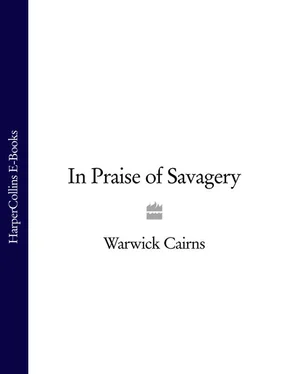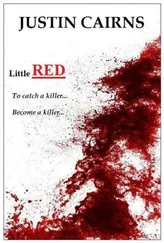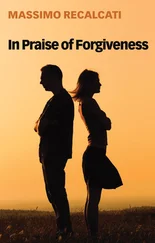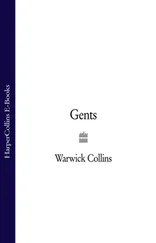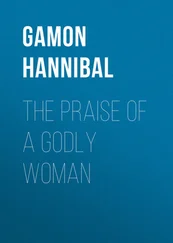He became aware of low voices across the room, and of a cluster of men, and one stepped out from among them and gestured to the others to stay, and turned to look over to where Thesiger sat. He was a young man—little more than a boy, in fact—maybe sixteen or seventeen at a guess—and slight, light-boned, narrow-shouldered and black as your hat. He had prominent ears, big, heavy-lidded eyes, and he wore a formal black suit, tightly buttoned-up, with a high white collar, and highly-polished black shoes on his feet; and he carried a battered leather satchel, brass-buckled like a doctor’s bag.
Thesiger shot to his feet, recognising the boy at once.
The boy smiled, revealing white teeth, and crossed to where he stood.
‘Do sit down,’ he said, in perfect, educated English, ‘You don’t mind if I join you?’
‘You are more than welcome, sir,’ said Thesiger.
A waiter appeared and pulled out a chair so that His Highness Asfa Wossen Tafari, Crown Prince of Abyssinia, eldest son of the Conquering Lion of the Tribe of Judah, King of Kings and Elect of God, and direct lineal descendant, it was said, of King Solomon and the Queen of Sheba, could sit down.
‘Jolly good sandwiches,’ said the boy, taking a bite, ‘Not so sure about the tea, though. A bit cool for my liking.’
He snapped his fingers and fresh tea was brought.
‘Now,’ he said, ‘down to business. The place you desire to go to: they are very bad people there, you know. Absolute savages. And you are determined to go among them?’
‘Yes, sir.’
‘They will kill you, of course.’
‘I’m prepared to take my chances.’
‘I am sure that you are. Everything I have heard about you convinces me that this is, indeed, the case. But it is not as simple as that. Not by a long way, because if they kill you, it puts my father in a very difficult position.’
‘How so, sir?’
‘Aussa is part of Abyssinia. This is agreed. It is not in dispute. And in all of Abyssinia my father’s word is law. But the Sultan does not always see things in this way. And there have been … incidents in the past. Very unfortunate ones. We tend to keep our officials away from Aussa, to avoid too many of these … misunderstandings. Now, if you travel there, with my father’s authority and under his protection, and if anything were to happen to you, then he would be obliged to take the matter up with the Sultan, and it would all be rather awkward.’
‘I understand that, sir—which is why I am prepared to go there at my own risk, and without involving your father in any way, other than asking for his permission to proceed.’
‘Hmm …’ he said. ‘Just what we expected you to say. So you are absolutely determined to do this thing?’
‘I am, sir.’
‘And nothing we could say would make you think otherwise?’
‘No. Nothing.’
The young prince looked serious for a while, and then, quite suddenly, he smiled.
‘Well, in that case, my father has, after careful consideration, authorised me to offer you two things.’
He took a sip of his tea, savouring the flavour of it before continuing.
‘The first,’ he said, ‘is his permission.’
Thesiger moved as if to speak, but the prince raised a hand to silence him. ‘And the second,’ he continued, ‘is this.’
He pulled out his satchel from beneath the table and unfastened the buckles. From inside a faint, slightly sour odour arose, as of stale sweat.
Reaching in, the prince pulled out a bundle of yellowed cloth, which looked very much like someone’s used shirt, rolled up and knotted around something weighty; he passed it across the table.
‘You may open it.’
It was, indeed, an old shirt. But when Thesiger untied the knotted sleeves and unwrapped the bundle, he saw inside a heavy, ancient-looking gold chain upon which were strung rows of thick gold rings.
‘For your expenses,’ said the prince.
Sometimes there can be whole days, weeks, months and years that pass you by and it seems just like the blink of an eye.
Then there are other times where the actions of an instant seem to last for ever.
People who have been in car crashes or other near-fatal disasters often talk about time ‘slowing down’. It is said that they are able to recall all sorts of peripheral detail with astonishing accuracy, as if they had the time, in the half-second of their almost-death, to roam the scene with the camera of their mind’s eye, and to record for posterity not just the look of drunken horror on the other driver’s face but the missing second button on his shirt-front; the colour and style of the lead on the dog being walked by the man in the flat cap on the pavement; the words and the patterns on the half-torn circus poster on the wall behind him.
Scientists call this time dilation , and it signifies the feeling of the opening-out of a moment far beyond its normal or expected limits.
There is a reason that it feels like this.
At moments of intense significance and at moments of great physical risk, the brain pulls in all of its resources and processing-power, and crams more observations and more reactions into a fraction of a second than it would normally make use of in a duration many, many times longer. It does this the better to react quickly and effectively, and so to cope with whatever challenges or opportunities it faces.
The result of all of this is that we experience moments that, for good or ill, are more intensely lived, and in which time appears to slow down, or even, on occasion, to stop.
And just as this time dilation exists, so also, I believe, there exists its opposite, which you might, I suppose, call time diminution , if you were to use the same rules of construction. Time diminution, or what you will, is an experience in which large tracts and expanses of time just pass you by, just vanish away unmarked and unnoticed, except when you look back later and think, was that it?, or, where did it all go?
From the end of the talk in the house in the cul-de-sac in Harlow New Town to my next contact with the man, and the visit to his flat in Tite Street, was two years, more or less.
They were two years in which, in one sense, much happened, but in which, in another, the main thing that happened was the passing away of time.
When the meeting had ended, the people there gathered up their coats, and those who drove got out their car-keys, while for those who did not, minicabs and the cars of parents arrived outside. But when he had finished his talk, and when the evening had begun to break up, I went up to him and asked him more questions about his life and times, and we carried on talking even as others were leaving around us, until, at last, there were no other guests left, and the owner of the house was standing there, as if to say, well, haven’t you got a home to go to? The man took a scrap of paper from his pocket and wrote his address on it and handed it to me.
‘If you go on this trip,’ he said, ‘do write and let me know how you get on.’
And then it was outside into the night air.
I applied, but did not get a place.
I also applied for academic scholarships overseas, but did not get them, either.
In the meantime, there was banking to be done, and banking examinations, which I was required to study for.
Months passed in which I undertook two correspondence courses with something called the Rapid Results College. One was in Law Relating to Banking and the other in Economics. In Economics I learnt—the only thing I remember from it now—that if a bank lends money that doesn’t exist, and which hasn’t been minted or printed, or made or planned, it can actually cause that money to come into being, and so increase the money supply.
Читать дальше
